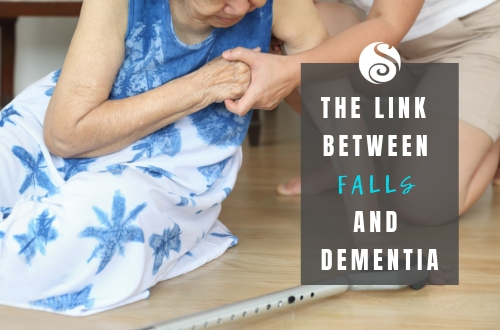 People living with Alzheimer’s and dementia fall more often than seniors who are not experiencing cognitive issues. But until recently, scientists have struggled to explain why. In spring 2017, a group of researchers from the University of Western Ontario attempted to get to the bottom of this medical phenomenon.
People living with Alzheimer’s and dementia fall more often than seniors who are not experiencing cognitive issues. But until recently, scientists have struggled to explain why. In spring 2017, a group of researchers from the University of Western Ontario attempted to get to the bottom of this medical phenomenon.
The insights revealed in their report, Risk Factors Associated with Falls in Older Adults with Dementia: A Systematic Review, can help caregivers prevent falls by empowering their loved ones to navigate their home with more confidence and ease.
Quantifying the Risk
According to the Alzheimer’s Society of Manitoba, people with dementia are four to five times more likely to experience a fall than other older adults. Even more troubling, when they fall, people with dementia are three times more likely to fracture a bone.
They’re also at a greater risk of experiencing an injury that could require hospitalization or even lead to death.
Understanding the Risk Factors
People with dementia experience a variety of symptoms that affect their ability to perform everyday tasks, according to the Alzheimer’s Association. The University of Western Ontario researchers identified several symptoms that may increase one’s risk of experiencing a fall, including:
- Problems With Balance and Gait
People with Alzheimer’s are more likely to experience a decline in balance and changes in their gait, according to a study published in the Journal of Geriatric Physical Therapy. In fact, changes in one’s stride can be an early indicator of the disease. - Changes in Vision
Dementia negatively affects one’s visuospatial abilities, including the ability to perceive the size and location of the objects around us. Dementia can also cause changes in one’s depth perception, which further increases the risk of falls. - Medications
Taking a medication that affects one’s nervous system, including antipsychotics, antidepressants and sedatives, was linked to an increased risk of falls in people with dementia, according to the Canadian team’s systematic review. - Emotional Changes
Alzheimer’s can also cause symptoms of anxiety, depression and irritability. The Alzheimer’s Association says these emotional changes are likely to increase as the disease progresses. High scores on anxiety measurement tests were shown to correlate with an increased risk of falling in the University of Western Ontario researchers’ report.
Creating a Fall-Proof Environment
If you’re caring for someone with Alzheimer’s or dementia, one of the best ways to prevent a painful tumble is to create a fall-proof environment. This includes removing clutter and ensuring all passageways are well-lit. Cleaning up spills immediately and removing slippery surfaces like throw rugs can also help reduce falls.
Caregivers can also encourage safe wandering to ease their loved ones’ frustration, anger and depression while preventing falls. Memory care communities that offer specialized care for dementia and Alzheimer’s will often create safe, protected outdoor areas where residents can explore and pace safely, without risk of falling or accidentally leaving the premises.
New technologies are available to keep older adults safer in the home as they age in place, including voice-activated assistants and remote monitoring to alert loved ones of emergencies such as a falls.
Finally, the way a caregiver communicates with his or her loved one can also help prevent a painful fall. By maintaining eye contact and reading nonverbal cues, you’re better equipped to understand what your loved one is experiencing and quickly address their needs.
Communicating in short, encouraging phrases can help increase your loved one’s confidence. While staying calm, maintaining neutral expressions and allowing plenty of time to get from point A to point B can create a more positive, less stressful environment.
To learn how Serenades memory care communities help people in Florida with Alzheimer’s maintain independence, call us today or schedule a visit →
